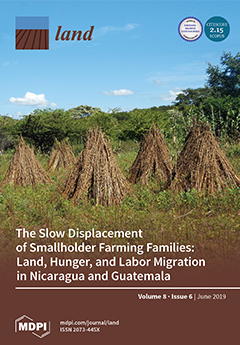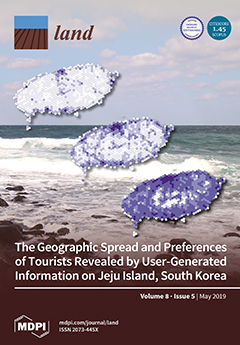Resources
Displaying 1716 - 1720 of 2258Evaluation of Land Intensive Use in Shanghai Pilot Free Trade Zone
Free trade zones represent an important system innovation space to realize economic agglomeration advantages with high-level openings. However, its evaluation of land intensive use has not received enough attention. The goal of this paper is to build a land use performance evaluation index system in line with the development trend of industrial economy and the characteristics of mixed land use in the free trade zones. An evaluation index system is constructed based on the three factors of land use status, land use efficiency and pilot free trade zone influence.
Effect of Land Acquisition and Compensation on the Livelihoods of People in Quang Ninh District, Quang Binh Province: Labor and Income
Researchers and development practitioners have an interest in the relationship between land and rural livelihoods. In this context, agricultural land is being increasingly lost because of developing industrialization in the provinces of Vietnam. The livelihoods of people, whose land is appropriated, are affected. Therefore, this article investigates the impact of land acquisition and compensation on the labor and income of people when the State acquires their land to construct Industrial park projects.
The Slow Displacement of Smallholder Farming Families: Land, Hunger, and Labor Migration in Nicaragua and Guatemala
Smallholders worldwide continue to experience processes of displacement from their lands under neoliberal political-economic governance. This displacement is often experienced as “slow”, driven by decades of agricultural policies and land governance regimes that favor input-intensive agricultural and natural resource extraction and export projects at the expense of traditional agrarian practices, markets, and producers. Smallholders struggle to remain viable in the face of these forces, yet they often experience hunger.
What Happened to the Forests of Sierra Leone?
The last National Forest Inventory of Sierra Leone took place more than four decades ago in 1975. There appears to be no legal definition of “forest” in Sierra Leone and it is sometimes unclear whether reports are referring to the forest as a “land use” or a “land cover”.
Could Social Farming Be a Strategy to Support Food Sovereignty in Europe?
Food sovereignty (FS) aims to obtain value-added products in proximity agriculture (PA) in order to achieve food security in a country. Social farming (SF) can help to develop this PA as well as favoring integration of people at risk of social exclusion (RSE). The methodology includes a review of the literature, a survey of 161 SF projects in Catalonia, and ten selected in-depth interviews. “Social Return on Investment” (SROI) methodology is also applied to assess the efficiency of the projects analyzed.



